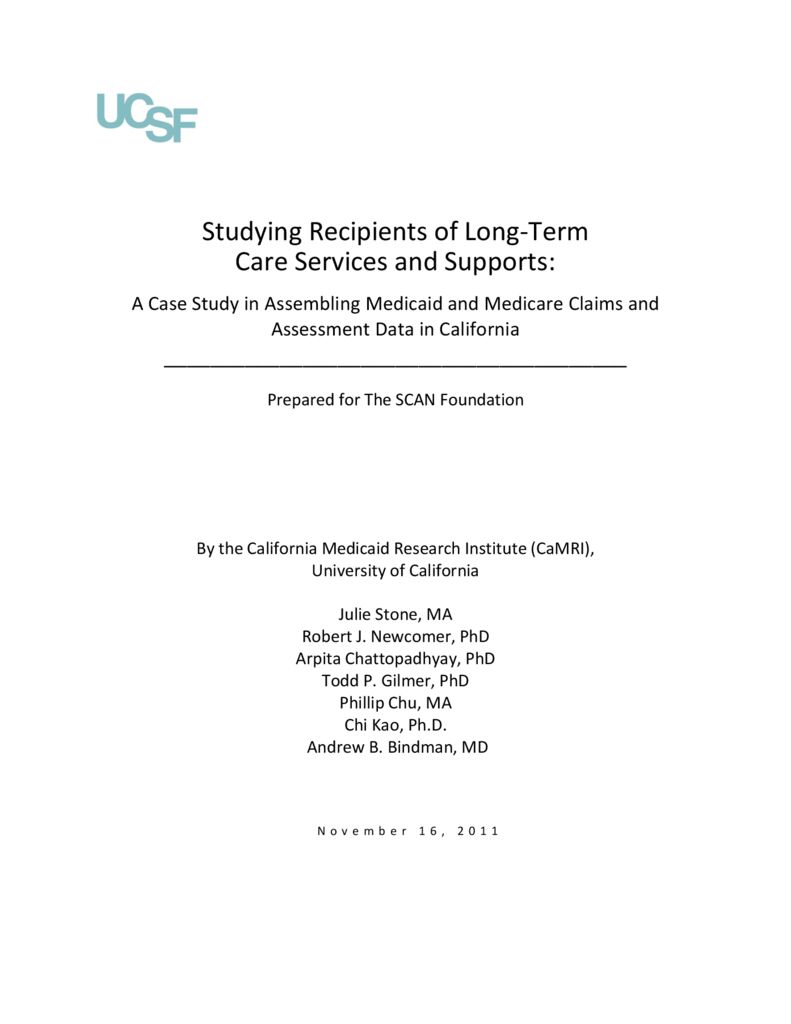CAMRI: Studying Recipients of LTSS – Medicaid and Medicare Claims and Data in California
summary
In this brief, the California Medicaid Research Institute documents its process to acquire and link all the data sources necessary to evaluate long-term care services utilization, costs, and outcomes in California. This provides useful information about how data currently flows in the state and how system transformation can be supported.
Date Updated: 11/16/2011A new body of research will be needed to help federal and state policy makers identify methods for improving the quality and efficiency of care for individuals with long-term services and supports (LTSS) needs enrolled in Medicaid only and in both Medicaid and Medicare for dual eligibles. Such research can benefit from Medicaid’s and Medicare’s administrative data to evaluate services provided to individuals by need and along the entire care continuum. To be useful to policymakers, research must be comprehensive, scientifically valid, and timely…
Continue Reading
This is the third report coming from the California Medicaid Research Institute (CAMRI) project entitled: Comprehensive Analysis of Home- and Community-Based Services in California. The report describes Medicare and Medi-Cal spending for those beneficiaries using long-term services and supports funded by Medi-Cal.
The California Medicaid Research Institute (CAMRI) developed an integrated and longitudinal database containing Medi-Cal and Medicare claims and assessment data of LTSS recipients in California in 2008. CAMRI’s integrated database provides a unique opportunity to look at characteristics and program spending across the entire care continuum for beneficiaries with LTSS needs within Medi-Cal and for dual eligibles across Medicare and Medi-Cal. This report focuses on LTSS use and spending in the eight duals demonstration counties.
In this paper, the National Committee for Quality Assurance (NCQA) discusses prior integration efforts; introduces a model for integrated entities and a framework for assessing and promoting quality of integrated care; and explores the challenges to implementing and achieving the goals of person-centered, integrated care for Medicare-Medicaid beneficiaries. They use the word “framework” to describe the key concepts underlying the structure and process measures; it can also be expanded to include the content of performance measures as companions to the structure and process measures.


